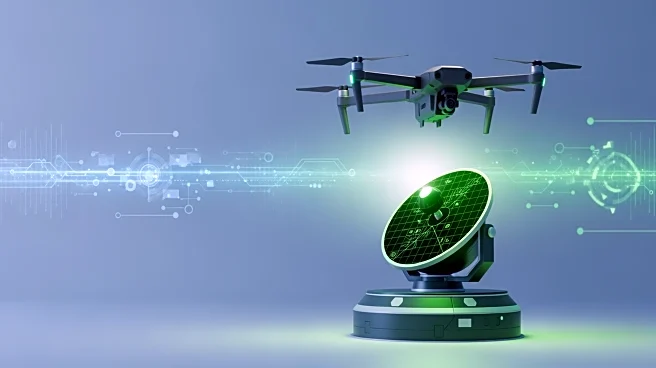What's Happening?
India and Israel have signed a new Memorandum of Understanding (MoU) to expand their cooperation in defence, industrial, and technological sectors. The agreement was formalized during the annual meeting
of the Joint Working Group (JWG) in Tel Aviv, co-chaired by Indian Defence Secretary Rajesh Kumar Singh and Major General (Res) Amir Baram, Director General of the Israeli Ministry of Defence. The MoU outlines a strategic vision for deepening the partnership between the two nations, focusing on areas such as strategic dialogues, training, defence industrial initiatives, science and technology, research and development, artificial intelligence, and cyber security. The agreement aims to facilitate technology sharing and encourage co-development and co-production. Discussions during the meeting also addressed shared security concerns, including terrorism, and explored further collaboration in advanced technologies.
Why It's Important?
The MoU between India and Israel signifies a strengthening of bilateral ties, particularly in the defence sector, which is crucial for both countries given their respective security challenges. For India, this partnership aligns with its 'Atmanirbhar Bharat' initiative, promoting self-reliance in defence production. The collaboration is expected to enhance India's defence capabilities through access to advanced Israeli technologies and joint development projects. For Israel, the agreement opens up opportunities to expand its defence exports and strengthen its strategic alliances in Asia. The focus on cyber security and artificial intelligence also highlights the growing importance of these fields in modern defence strategies, potentially leading to significant advancements in both countries' technological capabilities.
What's Next?
Following the MoU, both countries are expected to initiate specific projects and collaborations in the identified areas of cooperation. This may include joint ventures between Israeli and Indian defence firms, as well as increased exchanges of technology and expertise. The ongoing dialogue and cooperation are likely to result in new defence contracts and initiatives that will further solidify the strategic partnership. Additionally, the focus on cyber security and AI could lead to the development of new technologies that enhance both nations' defence capabilities. Stakeholders from both countries, including government officials and industry leaders, will likely continue to engage in discussions to ensure the successful implementation of the MoU's objectives.









